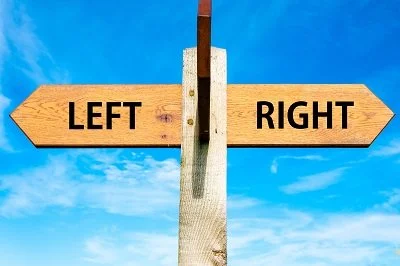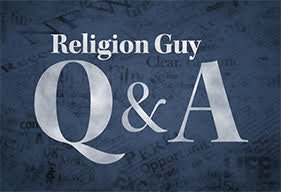THE QUESTION:
Is Christianity in the United States becoming two different religions?
THE RELIGION GUY'S ANSWER:
If the question above seems off the wall, at least look why it has arisen.
Two years ago, The Guy wrote that he was quite astonished by some survey research reported in "The Twentysomething Soul" (Oxford University Press) by Tim Clydesdale of the College of New Jersey and Kathleen Garces-Foley of Marymount University.
Young Americans age 30 and under, quizzed about religion, were asked how they think of God.
One option was "a personal being, involved in the lives of people today." It doesn't get any simpler or more basic than that, whether you're Jewish, Christian or Muslim. Other choices were some impersonal "cosmic life force," or a deistic creator who is "not involved in the world now," or that God does not exist.
Not surprisingly, the evangelical Protestants were virtually unanimous in embracing the first definition. But remarkably, only half of those in the predominantly white, theologically pluralistic "mainline" Protestant church bodies made that choice, while 40 percent favored the vague "life force."
Young adult Catholics fell in between the two Protestant groups. (In this random sample, 30 percent were evangelicals, 18 percent Catholic, 14 percent "mainline" Protestant, and 29 percent with no religious affiliation.)
The Guy therefore posed the question whether Protestants' long-running two-party rivalry "could be evolving toward a future with two starkly different belief systems."
Now a more radical version of that scenario is explored at book length in "One Faith No Longer" (New York University Press) by Baylor University sociologist George Yancey and Ashlee Quosigk, a visiting scholar of religion at the University of Georgia. More info here.
Their provocative proposal asserts that "conservative" and "progressive" Christians have become so thoroughly polarized in values, goals and identity that they're no longer "subgroups within the same religion." Rather, they are in the process of becoming -- or already are -- "two distinctive religious expressions. …. The distinctions are so powerful that it is indeed no longer feasible to consider them in the same religious category."
Yancey and Quosigk go so far as to compare this with the way Buddhism continued some concepts of Hinduism but evolved into a separate world religion. They say progressive and conservative Christianity are "all-but-separate" religions. with essential goals that are "diametrically opposed."
They want to highlight this situation saying that scholars and the media have long neglected the internal life of liberal churches while closely focusing on every twist and turn among the conservative evangelicals. (The Guy himself has done this, posting several recent items about a "crack up" among evangelical leaders and alienation between them and grass-roots believers.)
Since the rise of Donald Trump, political furies have exaggerated such fissures in U.S. religion and culture, but the book says the Christian split was evident in pre-Trump America and the kernel of the phenomenon stemed from the dispute between Protestant "fundamentalists" and "modernists" in the late 19th and early 20th Centuries.
Which brings up what The Guy finds confusing about this innovative new research. The book scans Christians' attitudes toward the Bible and Islam, but not other doctrinal matters, and puts major focus on "thermometer" ratings of respondents' warm and cold feelings toward other groups in society, assorted opinion articles, and quotes from in-depth interviews with 36 conservative clergy and lay leaders and 41 from the progressive side, plus 25 pages of resource material on this subject.
Especially because the interviewees are anonymous with no breakdown by affiliation or credentials, it's hard to tell how much the long-running conflict among white Protestants (currently causing pending schisms in the Reformed Church in America and United Methodist Church) shapes Black and Hispanic Protestant churches and, especially, Catholics in this proposed Christian-wide split. Also tricky is that some of the interviewed "evangelicals" were ranked "progressive."
CONTINUE READING: “Is U.S. Christianity becoming two different religions?”, by Richard Ostling.
FIRST IMAGE: Illustration featured at ExcelMacromastery.com


